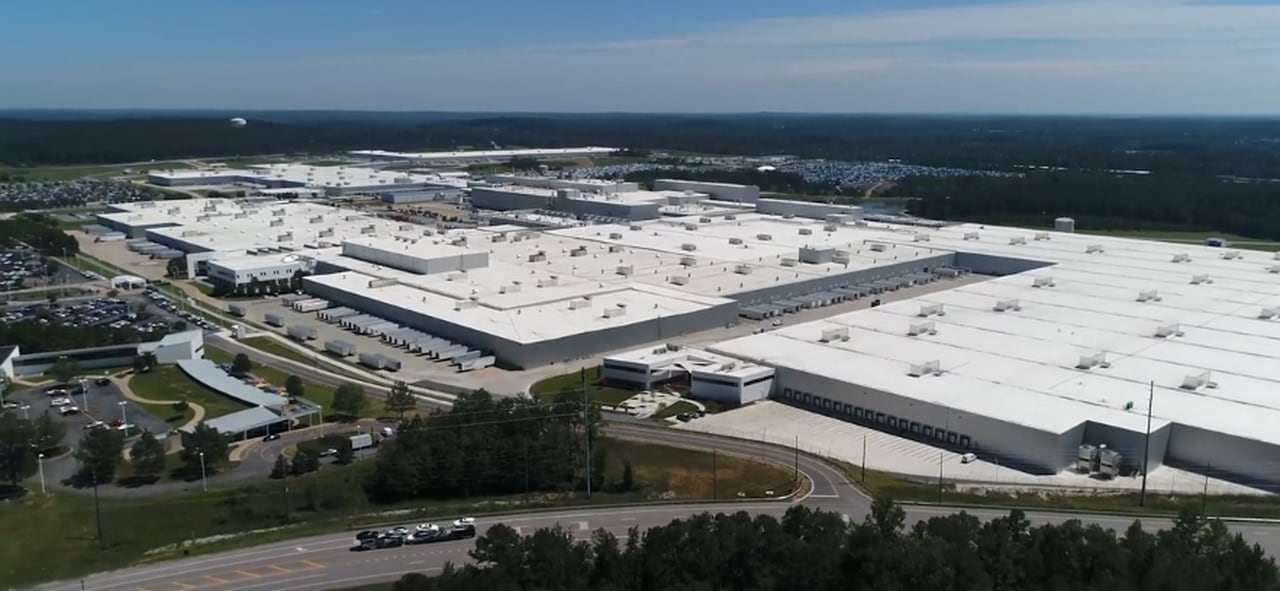More than half of Alabama Mercedes-Benz plant workers joined union in 2 months, UAW says
The United Auto Workers Tuesday announced that more than half of the employees at Mercedes-Benz’s Vance plant have signed union cards.
It’s a stunning announcement for an auto factory in a right-to-work state that has historically resisted the union’s organizing efforts in the 27 years since the German automaker opened the plant – the first in Alabama.
And the news comes only two months into an organizing drive by the union in Southern auto factories.
Earlier this month, the UAW announced that more than 50% of workers at Volkswagen’s Chattanooga plant had signed union cards, while 30% have shown union support at Hyundai’s Montgomery plant.
About 6,000 people work at Mercedes-Benz U.S. International (MBUSI), which was the first auto plant to locate in Alabama. The plant produces the Mercedes GLE, GLE coupé and GLS model series. After investing more than $1 billion into its Alabama operations since 2017, Mercedes also produces the all-electric EQS SUV and EQE.
In a video released by the union, Mercedes worker Jeremy Kimbrell, surrounded by coworkers, said they “are ready to win our union and a better life with the UAW.”
“There comes a time when enough is enough,” he said. “Now is that time. We know what the company, what the politicians, and what their multi-millionaire buddies will say. They’ll say now is not the right time. Or that this is not the right way. But here’s the thing. This is our decision. It’s our life. It’s our community. These are our families. It’s up to us.”
In a two-minute video, Kimbrell said workers have gone years without meaningful raises, while the company implemented a two-tier wage system and relied on temporary workers.
“We haven’t taken this step lightly,” he said.
“For years, we’ve fallen further behind while Mercedes has made billions. After 2008 and 2009, some of our coworkers were forced to leave the company. Consecutive CEOs said they’d be brought back once things improved. Things did improve, but they were never allowed to return and were replaced within six months by temporary workers at half the pay.”
The organizing drive comes on the heels of last year’s UAW’s Stand Up Strike against the Big Three American automakers. The six-week series of “stand-up” strikes, at some of the biggest auto plants in the country, featured workers at select locations walking off the job with very little notice.
More than 10,000 non-union autoworkers across 14 auto companies have signed union cards since last year, according to the UAW.
Bloomberg reported that MBUSI CEO Michael Göbel, who oversees production in North America for Mercedes, told workers at the plant that he doesn’t believe “the UAW can help us to be better.”
It’s not the first time the union has attempted to organize at the Tuscaloosa County plant. An effort 10 years, alongside a union drive in Chattanooga, was unsuccessful.
This month the UAW executive board committed $40 million over the next two years to fund its organizing push among non-union auto and electric battery workers, concentrating some of the money in the South.
The ultimate goal of the union’s drive, according to UAW materials, is to reach the 70% threshold.
The union pitch has not gone unnoticed by state lawmakers and business figures. Shortly after the UAW announced 30% of MBUSI’s workers had signed union cards, Gov. Kay Ivey, in a statement posted on the Alabama Department of Commerce page, said the union push by the UAW means that Alabama’s “model for economic success is under attack.”
Alabama’s commerce secretary, Ellen McNair, said the unionization drive “places our state’s main economic driver in the crosshairs.” And the CEO of the Business Council of Alabama, Helena Duncan, announced a website, Alabama Strong, online advertisements, and a campaign to “provide Alabamians with a full and thorough picture of the economic dangers that unionization presents.”
